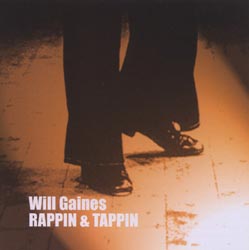
Free improvising guitarist Derek Bailey in duo with tap dancer Will Gaines, whose percussive dancing can be heard clearly, while Bailey plays guitar and Gaines "raps" in a sort of vaudevillian approach; a unique item even in Bailey's catalog!
In Stock
Quantity in Basket: None
Log In to use our Wish List
Shipping Weight: 5.00 units
EU & UK Customers:
Discogs.com can handle your VAT payments
So please order through Discogs
Sample The Album:
Will Gaines-tap
Derek Bailey-guitar
Click an artist name above to see in-stock items for that artist.
Label: Incus
Catalog ID: CD55
Squidco Product Code: 2008
Format: CD
Condition: New
Released: 2003
Country: UK
Packaging: Jewel Tray
Recorded in Oostrum Church, in Holland, in 1994, by Dick Lucas,
"It's easy to understand Derek Bailey's interest in working with dancers. It's also downright confounding.
Bailey's previous audio document involving the visual form was the simply titled Music & Dance (Revenant), a recording from a live performance with dancer Min Tanaka. Given Tanaka's speed-of-sloth movements and how rarely any sound comes from him, the idea of an audio document is, at face value, laughable. It's also one of Bailey's most satisfying recordings.
Rappin & Tappin pairs Bailey with tap dancer Will Gaines, and while tap is certainly noisier than Tanaka's butoh-inspired work, it's still strange to divorce it from the visual. (Incus has released videotapes of both duets, neither from the same performances as the discs.) Bailey's approach to the guitar is not wide-ranging - he's not one to adopt especially different styles - but he is very much influenced by his playing partners. The "tappin'" comes off like a prolonged rim-shot solo, interesting primarily for the directions in which it pushes Bailey. He leans toward fast staccato runs and, as on the video, the pair listen to each other intently.
If a tap-and-guitar record is an odd idea, a solo tap record is downright goofy. Yet that's what half this disc is. Bailey only arrives halfway through, and the first part of the program is a sort of vaudvillian tappin' and rappin' session from Gaines. He talks about old days, hams it up and delivers seemingly well-rehearsed one-liners. It's a fun listen once, maybe twice. And Bailey, who has made his own off-the-cuff recordings of talking while playing guitar, was no doubt charmed. If it's not entirely rewarding, it is interesting to see Bailey able to let fly his own fancies as a label manager.
Odder yet, but a worthier listen, is a thicket of noise called Limescale. It's often hard to find Bailey in the mesh of staticky percussion - he's there, but there's so much there there that it's hard to see the dog for the fleas. The quintet is made up of Bailey, Tony Bevan on bass saxophone, Alex Ward on clarinet and the arhythm section of T.H.F. Drenching (dictaphone) and Sonic Pleasure (bricks), and what stands out the most is the excellent and underrecognized (at least on these shores) Ward, who is well at home fighting monstrous noise. It's an enjoyable mess of a disc, although some liner notes, or even photos, might have been nice. How and why Drenching and Pleasure came to play their chosen instruments is left to the imagination. Like Rappin & Tappin there's a visual element obscured, a frustrating bit of fun."-Kurt Gottschalk, The Squid's Ear
Artist Biographies
• Show Bio for Will Gaines Will Gaines bebop rhythm tap dancer who became an international ambassador to tap, was born in Baltimore, Maryland and raised in Detroit, Michigan. At the age of twenty, he saw the Duke Ellington and Count Basie orchestras, master swing orchestra, but was most impressed with the new bebop style of Dizzy Gillespie. Upon seeing the young bebop rhythm tap virtuoso Teddy Hale dance, he dedicated himself to performing in the improvisational bebop style of rhythm tap. In the 1950s Gaines worked with such jazz greats as Lucky Thompson, Kenny Burrell, Tommy Flanagan, and Sonny Stitt at New York's Apollo Theatre. In 1957 he joined Cab Calloway's orchestra and Martha Ray's Night Club in Miami, and also danced in Las Vegas and Washington, D.C. for President Dwight D. Eisenhower. He became a well-respected and expensive opening act commanding $500 a night, which was quite a step up from the $65 a week he earned when he started. On the road again, he opened at the 500 Club in Atlantic City, and went on to Toronto, Canada and Buffalo, New York. He arrived in London in July of 1963, appearing at the Pigille and Ronnie Scott's clubs, and in 1964 at the Palladium with Norman Vaughan, Tommy Cooper, and the Jack Parnell Orchestra. He appeared at Royal Festival Hall as well as in festivals in Glasgow, Edinburgh, Bracknell, and Birmingham. Like jazz tap dancer and choreographer Clarence "Buddy" Bradley who migrated to London in the 1930s, Gaines decided to make London his home, appearing at numerous venues, from concerts halls to countless street appearances alongside major names of British jazz, as well as many from the classical musical world. He was the first American jazz hoofer to perform at the Royal Opera House in Covent Garden. In 1983, Gaines appeared in the televised broadcast Masters of Tap with tap maestros Charles Honi Coles and Chuck Green, which was recorded at London's Riverside Studios. In 2005, at the age of nearly eighty, Gaines was a featured veteran performer in Cross Currents: Turned On Tap at the Queen Elizabeth Hall at South Bank Centre in London, in which he performed with English, Irish, and American tap dancers, and received superb critical reviews for his life-long career as a rhythm tap dancer. Gaines continues to live in London, where for over four decades he has taught and performed, and is regarded as one of America's ambassadors of jazz tap dance." ^ Hide Bio for Will Gaines • Show Bio for Derek Bailey "Derek Bailey (29 January 1930 - 25 December 2005) was an English avant-garde guitarist and leading figure in the free improvisation movement. Bailey was born in Sheffield, England. A third-generation musician, he began playing the guitar at the age of ten, initially studying music with his teacher and Sheffield City organist C. H. C. Biltcliffe, an experience that he did not enjoy, and guitar with his uncle George Wing and John Duarte. As an adult he worked as a guitarist and session musician in clubs, radio, dance hall bands, and so on, playing with many performers including Morecambe and Wise, Gracie Fields, Bob Monkhouse and Kathy Kirby, and on television programs such as Opportunity Knocks. Bailey's earliest foray into 'what could be called free improvised music' was in 1953 with two other guitarists in their shared flat in Glasgow. He was also part of a Sheffield-based trio founded in 1963 with Tony Oxley and Gavin Bryars called "Joseph Holbrooke" (named after the composer, whose work they never actually played). Although originally performing relatively "conventional" modal, harmonic jazz this group became increasingly free in direction. Bailey moved to London in 1966, frequenting the Little Theatre Club run by drummer John Stevens. Here he met many other like-minded musicians, such as saxophonist Evan Parker, trumpet player Kenny Wheeler and double bass player Dave Holland. These players often collaborated under the umbrella name of the Spontaneous Music Ensemble, recording the seminal album Karyobin for Island Records in 1968. In this year Bailey also formed the Music Improvisation Company with Parker, percussionist Jamie Muir and Hugh Davies on homemade electronics, a project that continued until 1971. He was also a member of the Jazz Composer's Orchestra and Iskra 1903, a trio with double-bass player Barry Guy and tromboneist Paul Rutherford that was named after a newspaper published by the Russian revolutionary Vladimir Lenin. In 1970, Bailey founded the record label Incus with Tony Oxley, Evan Parker and Michael Walters. It proved influential as the first musician-owned independent label in the UK. Oxley and Walters left early on; Parker and Bailey continued as co-directors until the mid-1980s, when friction between the men led to Parker's departure. Bailey continued the label with his partner Karen Brookman until his death in 2005[citation needed]. Along with a number of other musicians, Bailey was a co-founder of Musics magazine in 1975. This was described as "an impromental experivisation arts magazine" and circulated through a network of like-minded record shops, arguably becoming one of the most significant jazz publications of the second half of the 1970s, and instrumental in the foundation of the London Musicians Collective. 1976 saw Bailey instigate Company, an ever-changing collection of like-minded improvisors, which at various times has included Anthony Braxton, Tristan Honsinger, Misha Mengelberg, Lol Coxhill, Fred Frith, Steve Beresford, Steve Lacy, Johnny Dyani, Leo Smith, Han Bennink, Eugene Chadbourne, Henry Kaiser, John Zorn, Buckethead and many others. Company Week, an annual week-long free improvisational festival organised by Bailey, ran until 1994. In 1980, he wrote the book Improvisation: Its Nature and Practice. This was adapted by UK's Channel 4 into a four-part TV series in the early '90s, edited and narrated by Bailey. Bailey died in London on Christmas Day, 2005. He had been suffering from motor neurone disease." ^ Hide Bio for Derek Bailey
Dates: 1928-2014
Birth Date: Apr 5, 1928
Death Date: May 7, 2014
Place of Birth: Baltimore, MD
Place of Death: London. England
11/20/2024
Have a better biography or biography source? Please Contact Us so that we can update this biography.
11/20/2024
Have a better biography or biography source? Please Contact Us so that we can update this biography.
Track Listing:
1. Solo 6:51
2. Go Way Back 3:16
3. Basically 3:19
4. Making Money 6:06
5. Applause, applause, applause 3:32
6. Duo 9:22
7. Glidin 6:36
8. Rappin 6:30
9. Tappin 10:08
London & UK Improv & Related Scenes
Free Improvisation
Duo Recordings
Before April-2006
Incus
Improvised Music
European Improvisation and Experimental Forms
Bailey, Derek
London & UK Improv & Related Scenes
Free Improvisation
Duo Recordings
Before April-2006
Search for other titles on the label:
Incus.



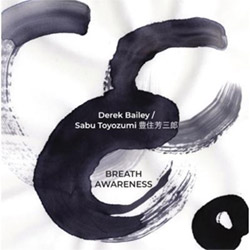


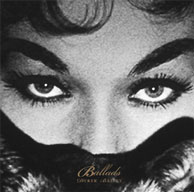
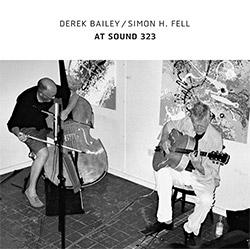
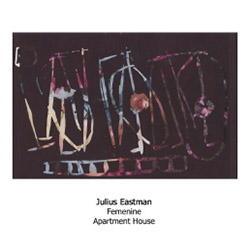
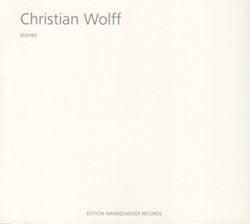



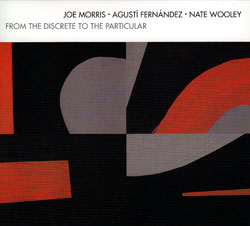
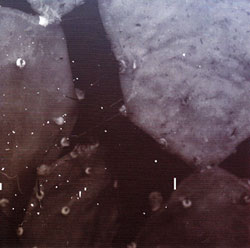
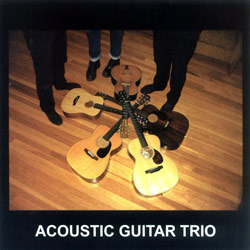


![Guy, Barry / Ken Vandermark: Occasional Poems [2 CDs]](https://www.teuthida.com/productImages/misc4/34849.jpg)
![Novoa / Carter / Mela Trio: Vol.1 [VINYL]](https://www.teuthida.com/productImages/misc4/35236.jpg)


![Elephant9 : Mythical River [VINYL]](https://www.teuthida.com/productImages/misc4/34624.jpg)
![Evans, Peter (Evans / Eldh / Black): Extra [VINYL]](https://www.teuthida.com/productImages/misc4/35279.jpg)

![McPhee, Joe: Straight Up, Without Wings [BOOK]](https://www.teuthida.com/productImages/misc4/35454.jpg)
![Jeck, Philip: rpm [2 CDs]](https://www.teuthida.com/productImages/misc4/35455.jpg)













![Barker / Parker / Irabagon: Bakunawa [VINYL]](https://www.teuthida.com/productImages/misc4/35533.jpg)
![Blaser, Samuel / Marc Ducret / Peter Bruun: Dark Was The Night, Cold Was The Ground [VINYL 10-inch]](https://www.teuthida.com/productImages/misc4/35492.jpg)








![Warren, Kenny (Warren / Hoffman / Ellman): Sweet World [VINYL]](https://www.teuthida.com/productImages/misc4/35451.jpg)




![Blake, Ran / Dave Knife Fabris: Live Amsterdam 2006, First Visit [CD + POSTCARDS]](https://www.teuthida.com/productImages/misc4/35275.jpg)













![DNS: Taking Big Bites Of The Khandas Three Cafes Deep [2 CDs]](https://www.teuthida.com/productImages/misc4/35334.jpg)




![Cleaver, Gerald: The Process [VINYL]](https://www.teuthida.com/productImages/misc4/34966.jpg)




![Alva Noto: HYbr:ID II [VINYL 2 LPs]](https://www.teuthida.com/productImages/misc4/35201.jpg)

![Baron, Derek / Luke Martin: Distinct and Concealed [CASSETTE + DOWNLOAD]](https://www.teuthida.com/productImages/misc4/35079.jpg)

![Lyle, Erica Dawn : Colonial Motels [CASSETTE + DOWNLOAD]](https://www.teuthida.com/productImages/misc4/35080.jpg)









![Sanna, Claudio: Compositori Sardi Contemporanei II [2 CDs]](https://www.teuthida.com/productImages/misc4/35317.jpg)







![Zurria, Manuel: Fame di Vento [3 CDs]](https://www.teuthida.com/productImages/misc4/35167.jpg)

![Granberg, Magnus / Nattens Inbrott / Skogen: Holde Traume, Kehret Wieder! [2 CDs]](https://www.teuthida.com/productImages/misc4/35038.jpg)
![Frey, Jurg: Outermost Melodie [2 CDs]](https://www.teuthida.com/productImages/misc4/35039.jpg)

![Pavone, Jessica: Reverse Bloom [VINYL]](https://www.teuthida.com/productImages/misc4/34895.jpg)




![Modney (Modney / Wooley / Gentile / Roberts / Pluta / Symthe / ...): Ascending Primes [2 CDs]](https://www.teuthida.com/productImages/misc4/34852.jpg)









![Elephant9 with Terje Rypdal: Catching Fire [VINYL 2 LPs]](https://www.teuthida.com/productImages/misc4/35355.jpg)
![Deerlady (Obomsawin, Mali / Magdalena Abrego): Greatest Hits [VINYL]](https://www.teuthida.com/productImages/misc4/34876.jpg)




![Haino, Keiji: Black Blues [2 CDs]](https://www.teuthida.com/productImages/misc4/35109.jpg)



![Surplus 1980: Illusion of Consistency [CD]](https://www.teuthida.com/productImages/misc4/35069.jpg)
![Staiano, Moe: Away Towards the Light [VINYL + DOWNLOAD]](https://www.teuthida.com/productImages/misc4/35037.jpg)



![Caveira (Gomes / Sousa / Abras / Ferrandini): Ficar Vivo [VINYL]](https://www.teuthida.com/productImages/misc4/34643.jpg)
![Gregg, J. J. / David Van Auken: Lunar Prairie [CD w/ DOWNLOAD]](https://www.teuthida.com/productImages/misc4/34611.jpg)

![Coultrain: Mundus [VINYL]](https://www.teuthida.com/productImages/misc4/32439.jpg)
![Mattin: Songbook #6 [VINYL]](https://www.teuthida.com/productImages/misc4/27317.jpg)
![Punkappella: Wake Up [7-inch VINYL]](https://www.teuthida.com/productImages/misc4/17519.jpg)
![Residents, The: WARNING: UNiNC.: Live And Experimental Recordings 1971-1972 [VINYL 2 LPs]](https://www.teuthida.com/productImages/misc4/31521.jpg)
![Coultrain: Phantasmagoria [VINYL]](https://www.teuthida.com/productImages/misc4/30142.jpg)
![Lennon, Sean Ono: Asterisms [VINYL]](https://www.teuthida.com/productImages/misc4/34517.jpg)

![Coley, Byron: Dating Tips for Touring Bands [VINYL]](https://www.teuthida.com/productImages/misc4/17906.jpg)

![Lost Kisses: My Life is Sad & Funny [DVD]](https://www.teuthida.com/productImages/misc4/lostKissesDVD.jpg)